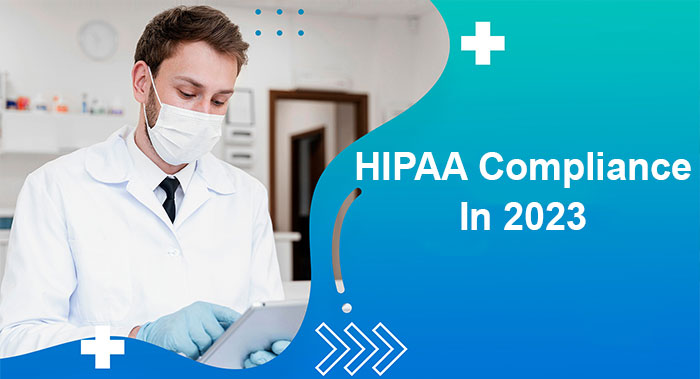
Things You Need to Know for HIPAA Compliance in 2023
HIPAA compliance and many new ways of working in the healthcare industry are changing. The migration to digital and evolving technologies has driven updates to the HIPAA privacy rule and is being followed in 2023. The official rules have been changed, and the approach to compliance is also changed.
The HIPAA 2023 guidance and compliance are evolving, but changing the mindset according to it is of utmost importance. Healthcare organizations must protect PHI and maintain trust with patients.
Pay attention to these five key trends to stay updated on compliance.
Convergence of HIPAA Security and Privacy
The recent advancement in electronic medical records and many new healthcare technology, security, and privacy are starting to connect everyone and make them one. All the information in ePHI is sensitive and should be protected with utmost care.
In the past, HIPAA privacy and security rules could have another purpose. But sometimes practices intersect and become stickier, so for the present and future, all healthcare organizations should consider the intersecting element of HIPAA compliance.
There is a detailed procedure for proper handling, patient rights, and effective security practice, which have to be correctly followed. As we proceed with this procedure, there will be a slim line of difference between security and privacy.
The new HIPAA policies in 2023 clarify patients' rights to access data along with the responsibilities of healthcare organizations to respond to requests, verify the identity of parties requesting PHI, and adequately handle data with third parties.
So, this new year remains updated on all the latest policies of HIPAA to stay ahead of the game.
Workforce Training: Phishing and Cyber-Awareness
There should be proper employee education to take appropriate precautions during any breaches. Cyberattacks have been increasing alarmingly, and according to 2021 data, 83% of organizations have experienced phishing attacks and more cyber attacks.
The right step toward these cyber attacks is to train your employees; Second, there should be proper reporting. And last but not least, to take appropriate precautions for further data. Usage of software like LMS or HIPAA compliance to train your employees.
Incorporating Cybersecurity Best Practices with 405(d)
All the updated HIPAA compliance will be effective from next year, and the utmost concern is cybersecurity. If we take a back look at 2017, there was a task group comprised of experts in IT, healthcare, cybersecurity, and privacy came together to create free resources for security purposes, and that will help people to understand section 405(d) of the cybersecurity act of 2015 of CSA.
There should be knowledge of all the best practices against cyber-attacks for your employees. As you build this knowledge, you can conduct a regular SRA to assess your employee's abilities.
The Importance of Remediation and Implementation
The DOJ concludes that only organizations can succeed in compliance with proper remedial action. The lack of adequate remediation and implementation can lead to penalties and many lawsuits.
So, in 2023 many organizations opted for compliance automation software to manage their risk assessment processes. This will save you time, and now you will have more time for remediating, which sometimes proves a challenge for many organizations.
Along with getting to automation techniques, you should also follow proper procedures for data handling and apply best practices for security purposes. In the case of smaller organizations, there should be more emphasis on prioritizing, centralizing, templatizing and tracking remediation.
Responding to an Incident: How to Get Yourself Ready
In case of any cyberattack, your organization should b well aware and have to report that issue immediately. There should be proper coordination between the teams and knowledge about every type of incident.
HHS writes a list of all the reported cyber attacks in the last 24 months, which are still under investigation. The team should be well aware of those attacks and correct resource usage from them to avoid this type of incident.
Follow these steps and guidelines in case of any breaches.
Prepare: Revisit all the IT assets at your healthcare organization and collect all the data from all the devices in the organization. Make a list of all the data and maintain proper records.
Detect and Analyze: Collect that data and attach the specific indicator to them. If any indicator is identified, then take particular precautions and make another way to minimize the threat.
Post-Incident Review: Once your systems are rebooted, review the recent incident and use it for further assistance. Decide if there are any ways to improve your response plan and if so, update your current procedures.
Start Planning for 2023
To ensure HIPAA compliance for next year, it’s essential to understand the recent changes in HIPAA regulations thoroughly, know cybersecurity best practices, and train your workforce to identify threats. The correct HIPAA compliance result will help you prepare with SRAs, automated reminders, workforce training, and more.
Indeed, staying ahead of HIPAA compliance in 2023 is crucial, so read more about it in this article, “What You Need to Know for HIPAA Compliance in 2023.”
To stay updated on HIPAA and compliance, visit this link




